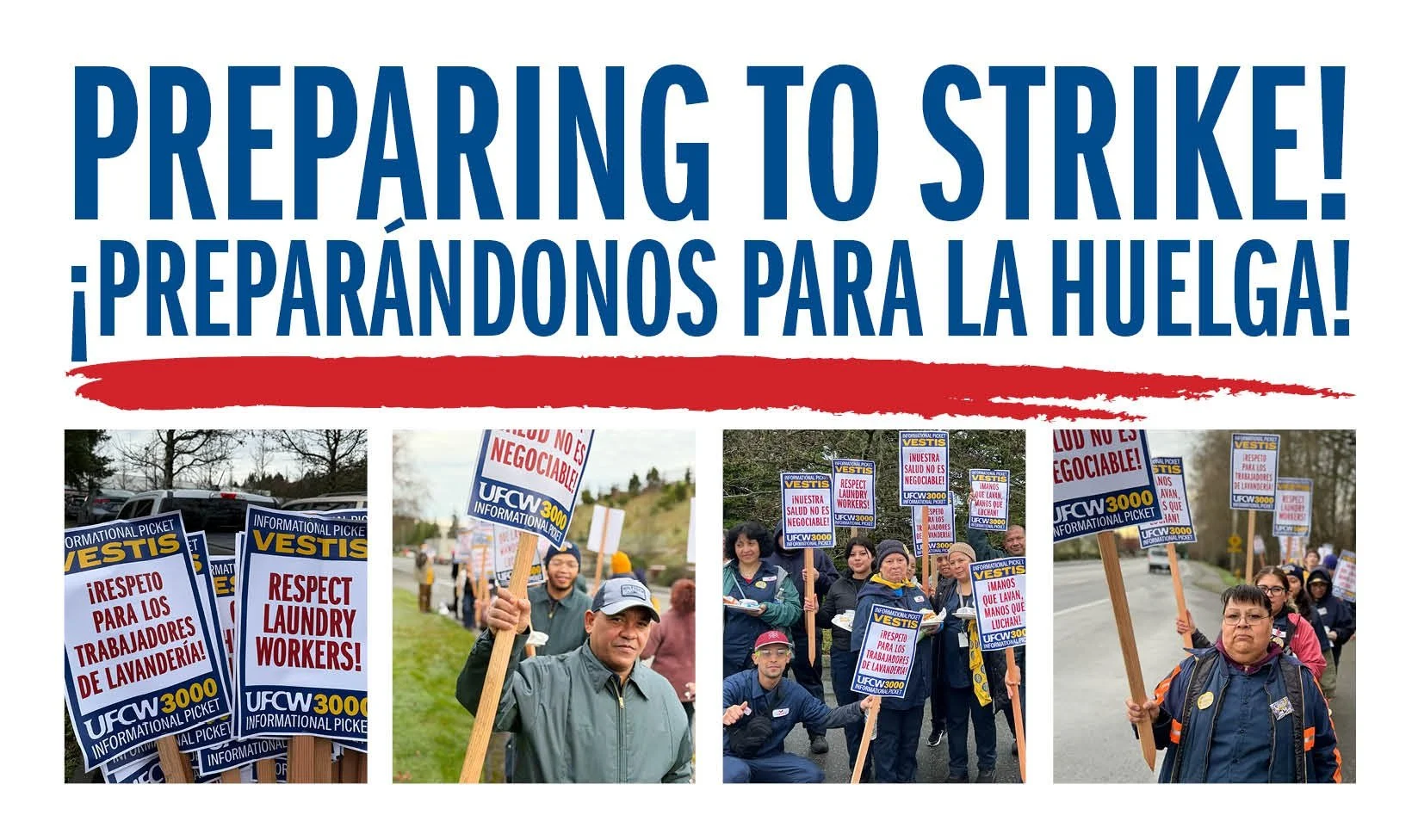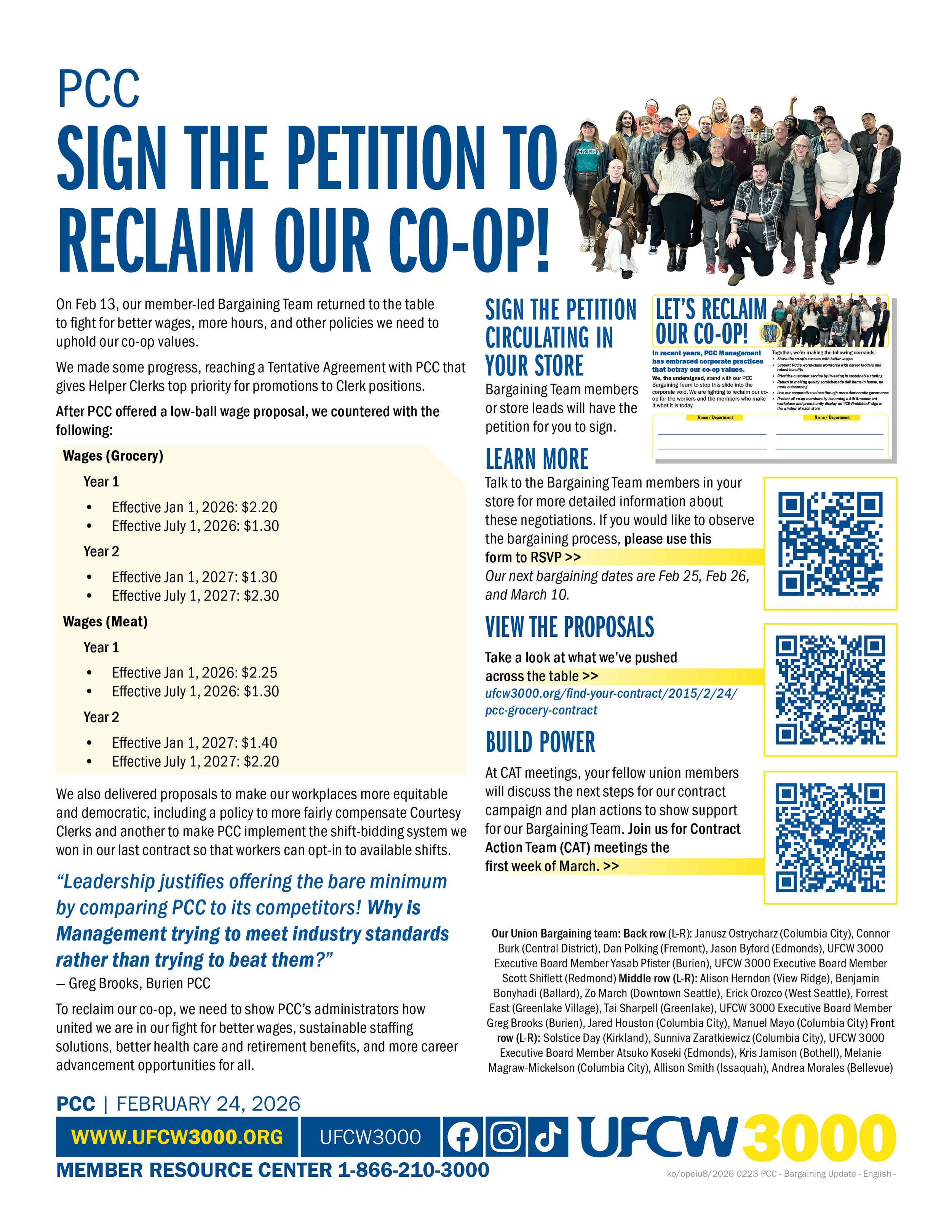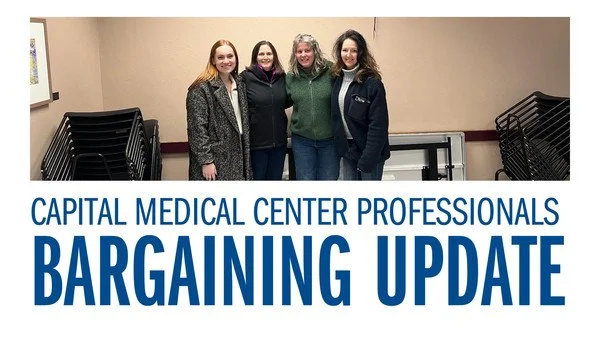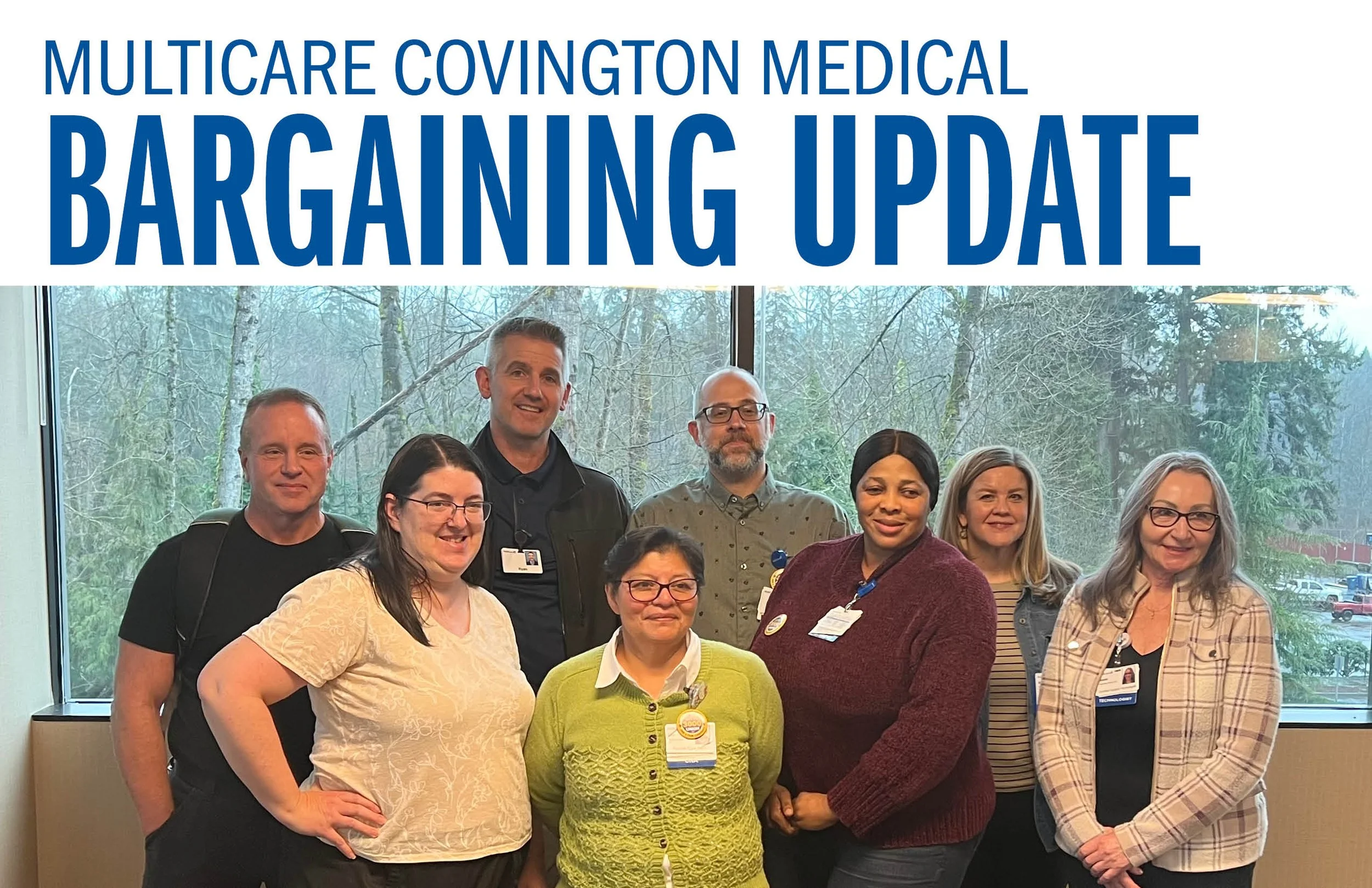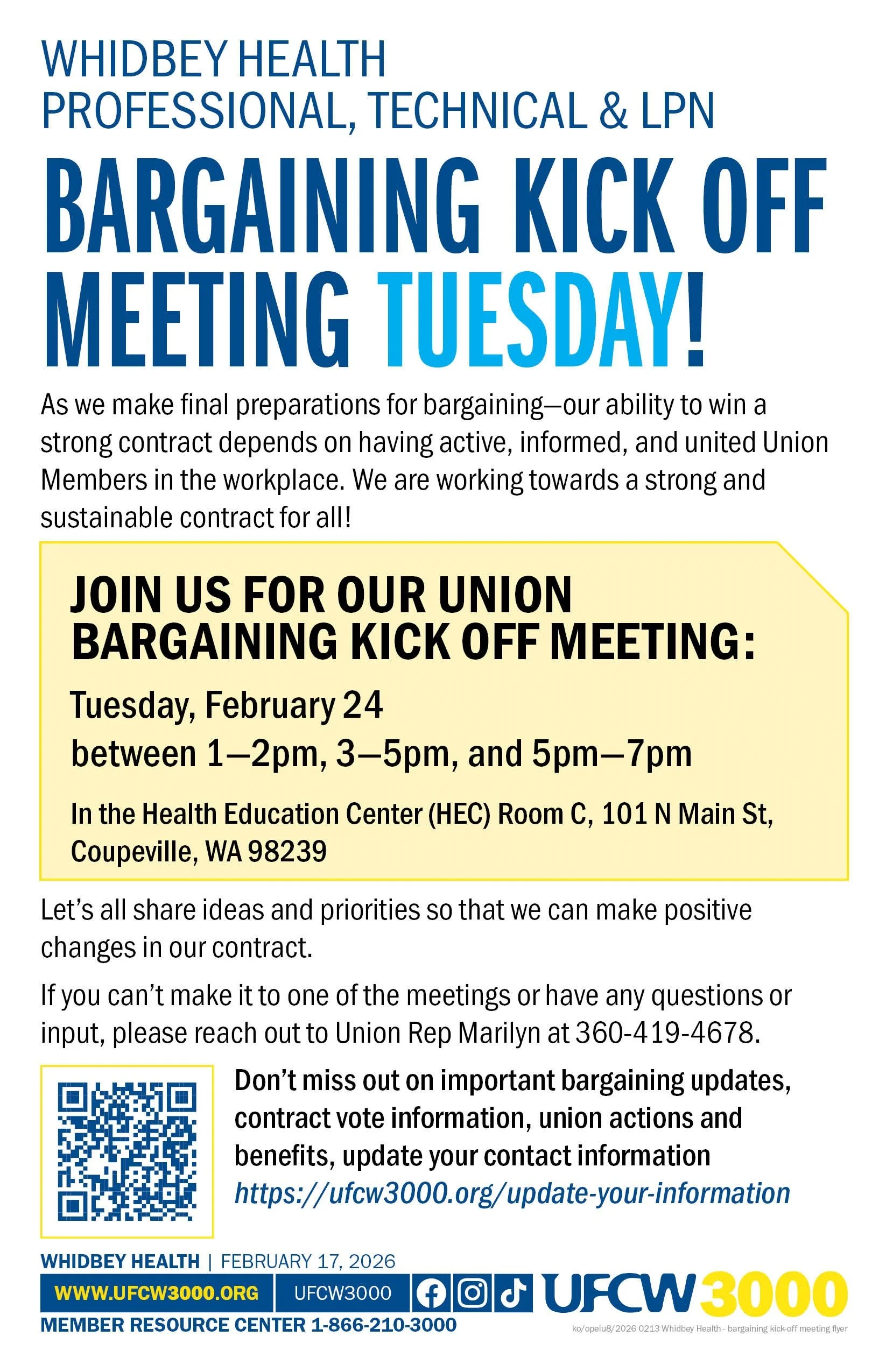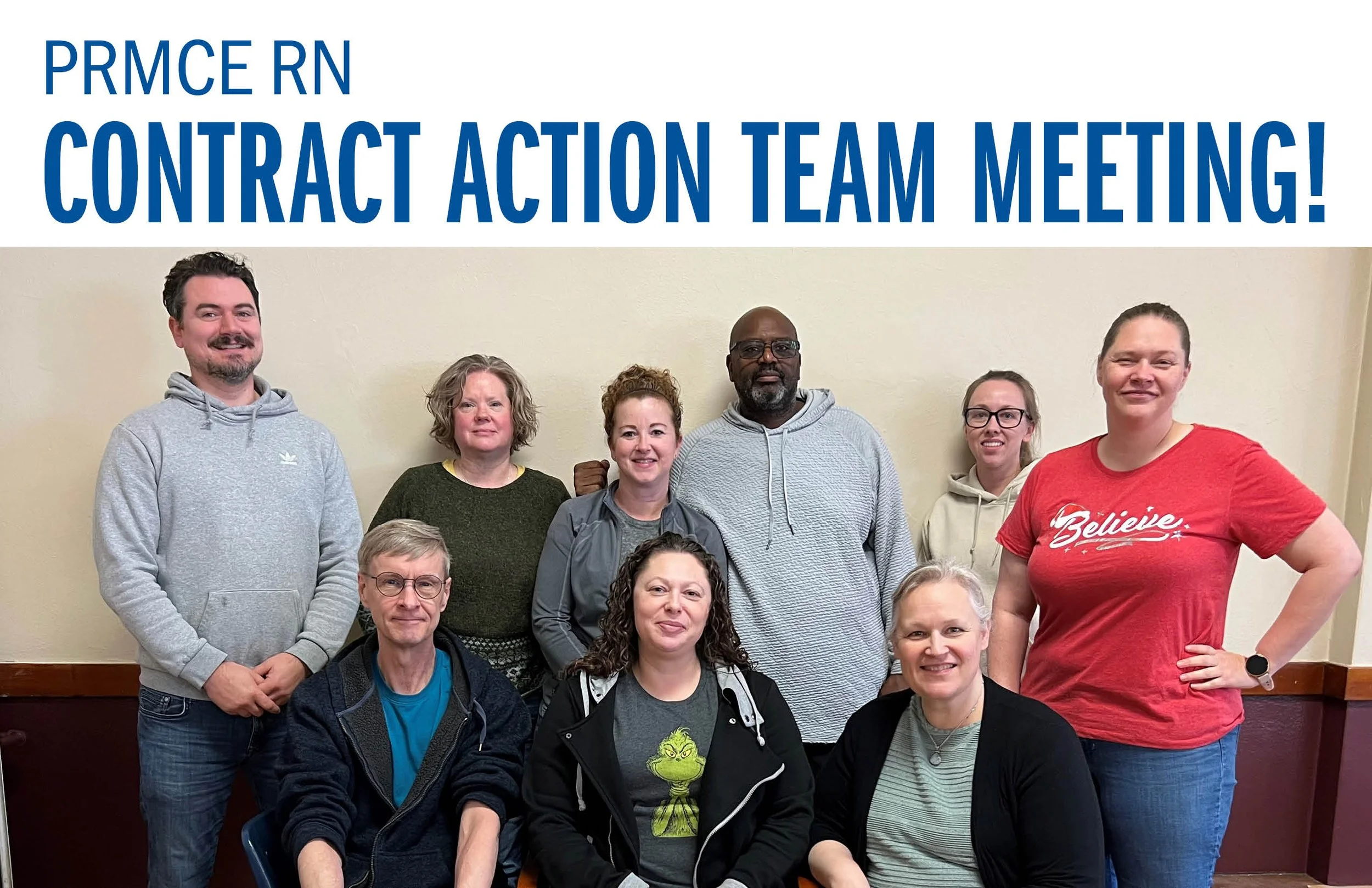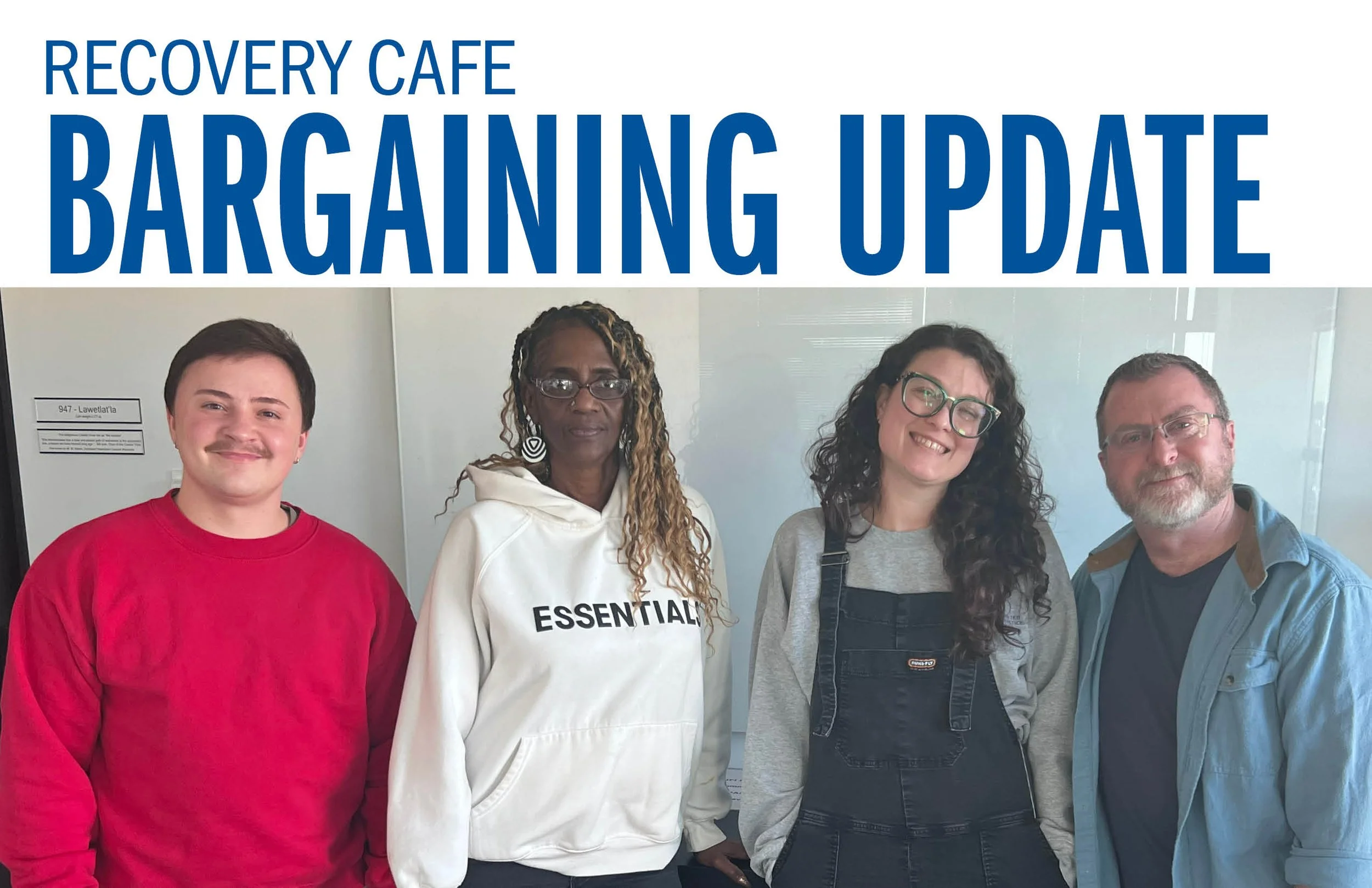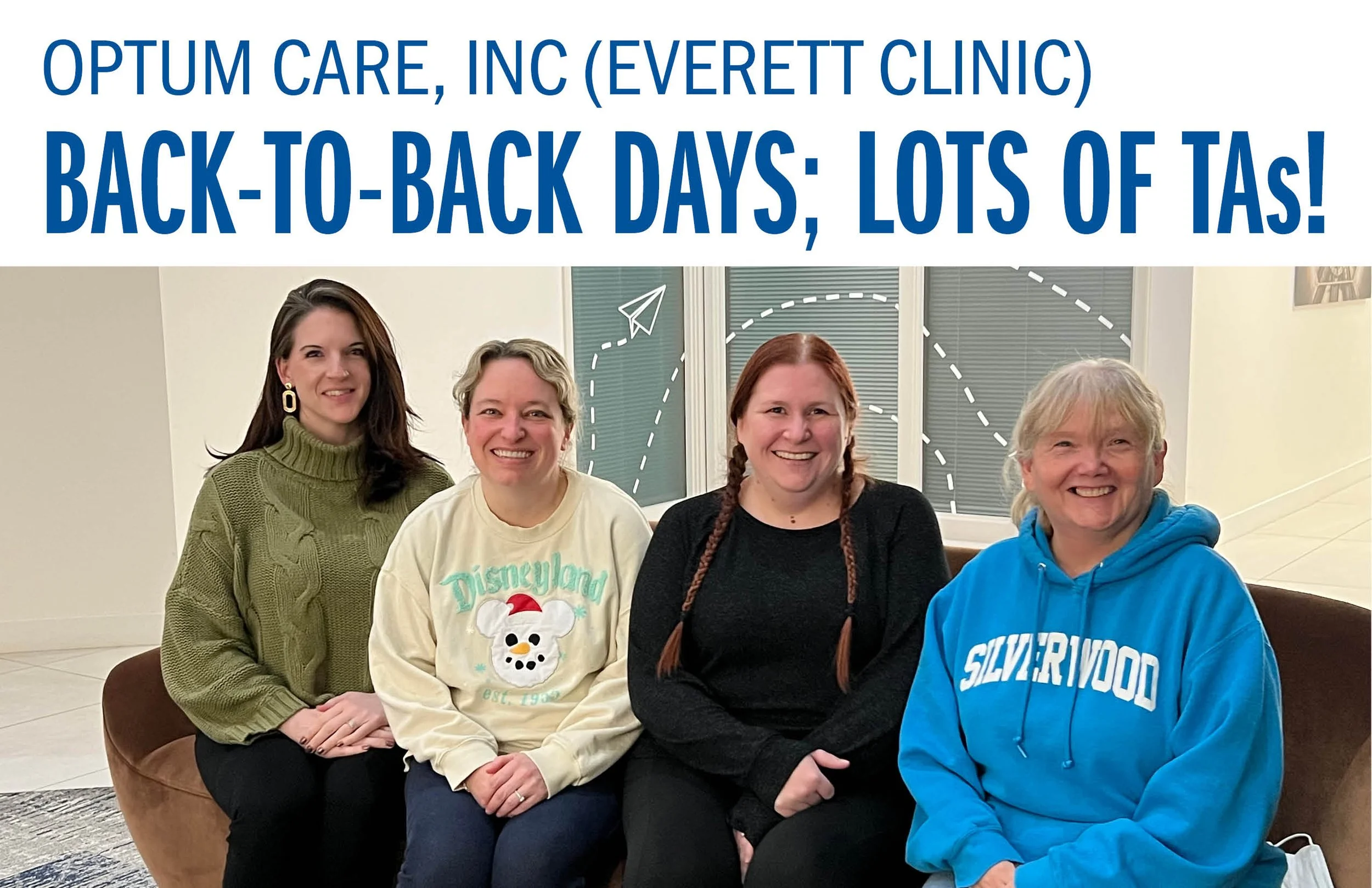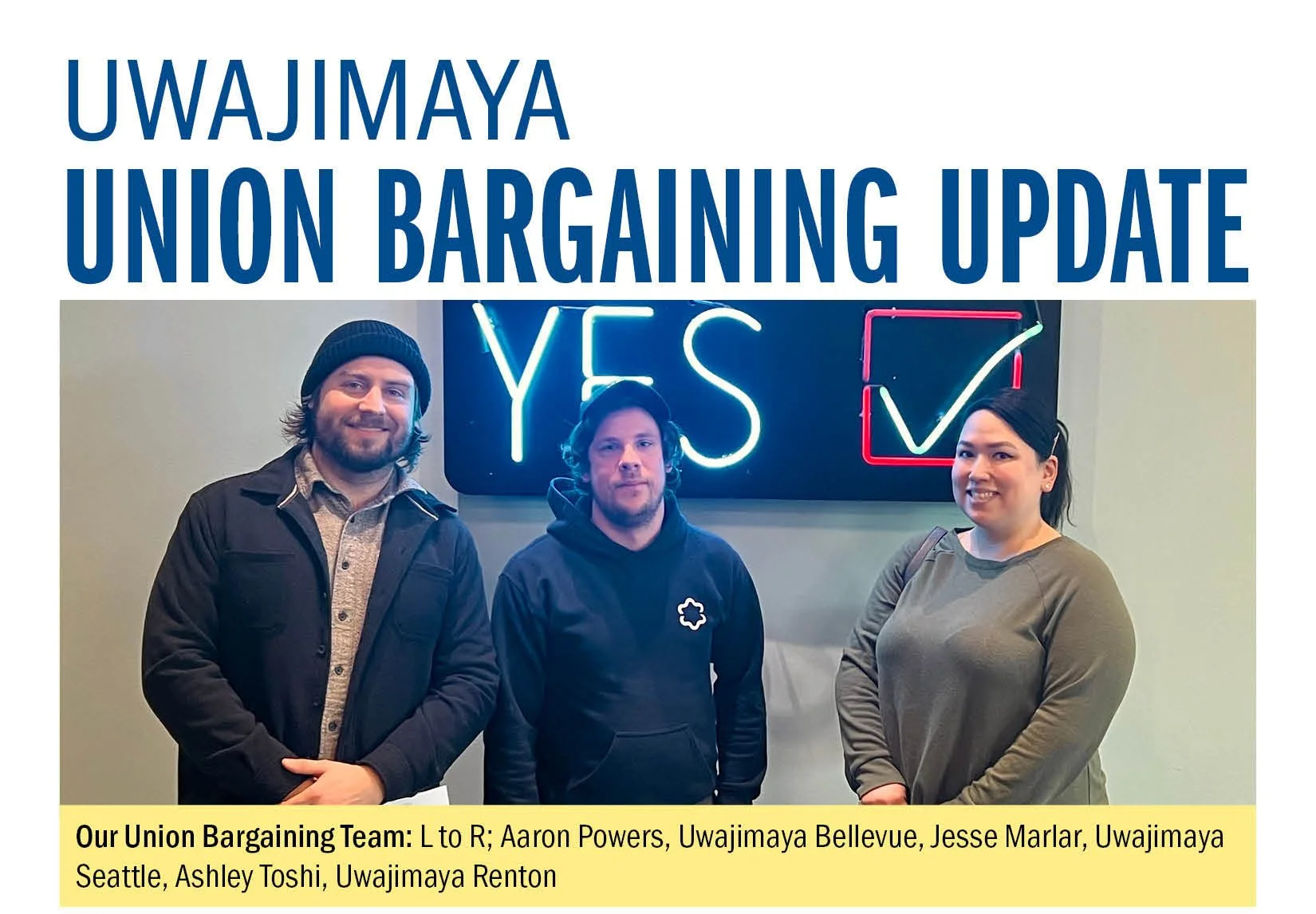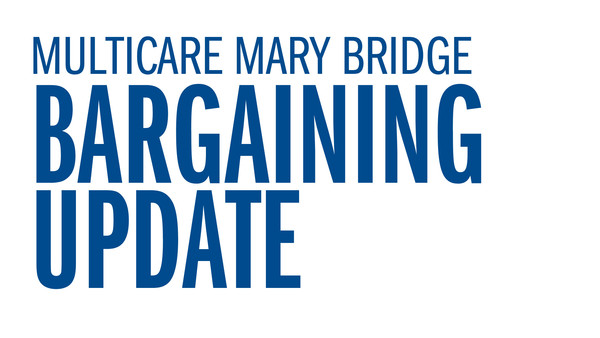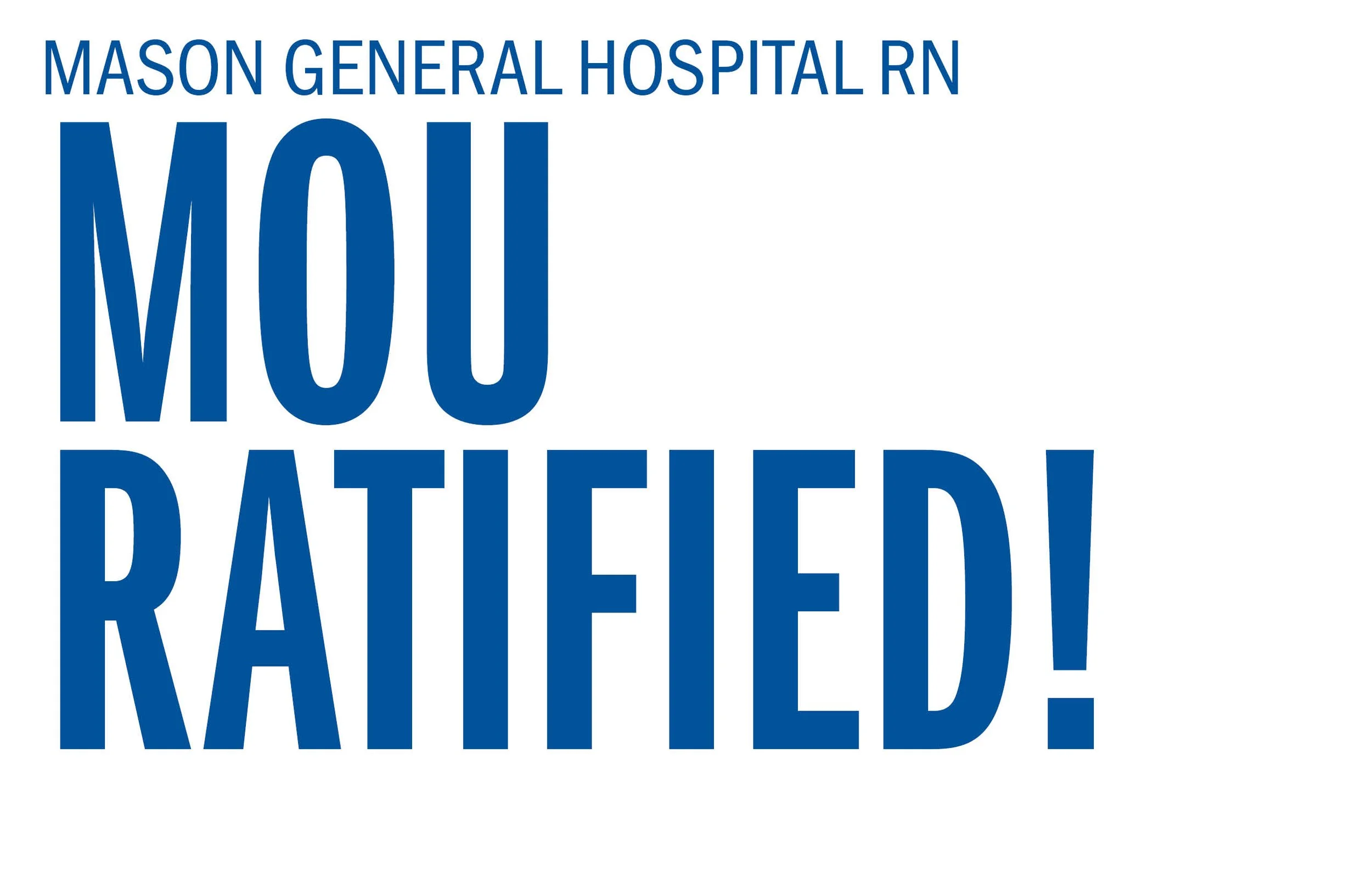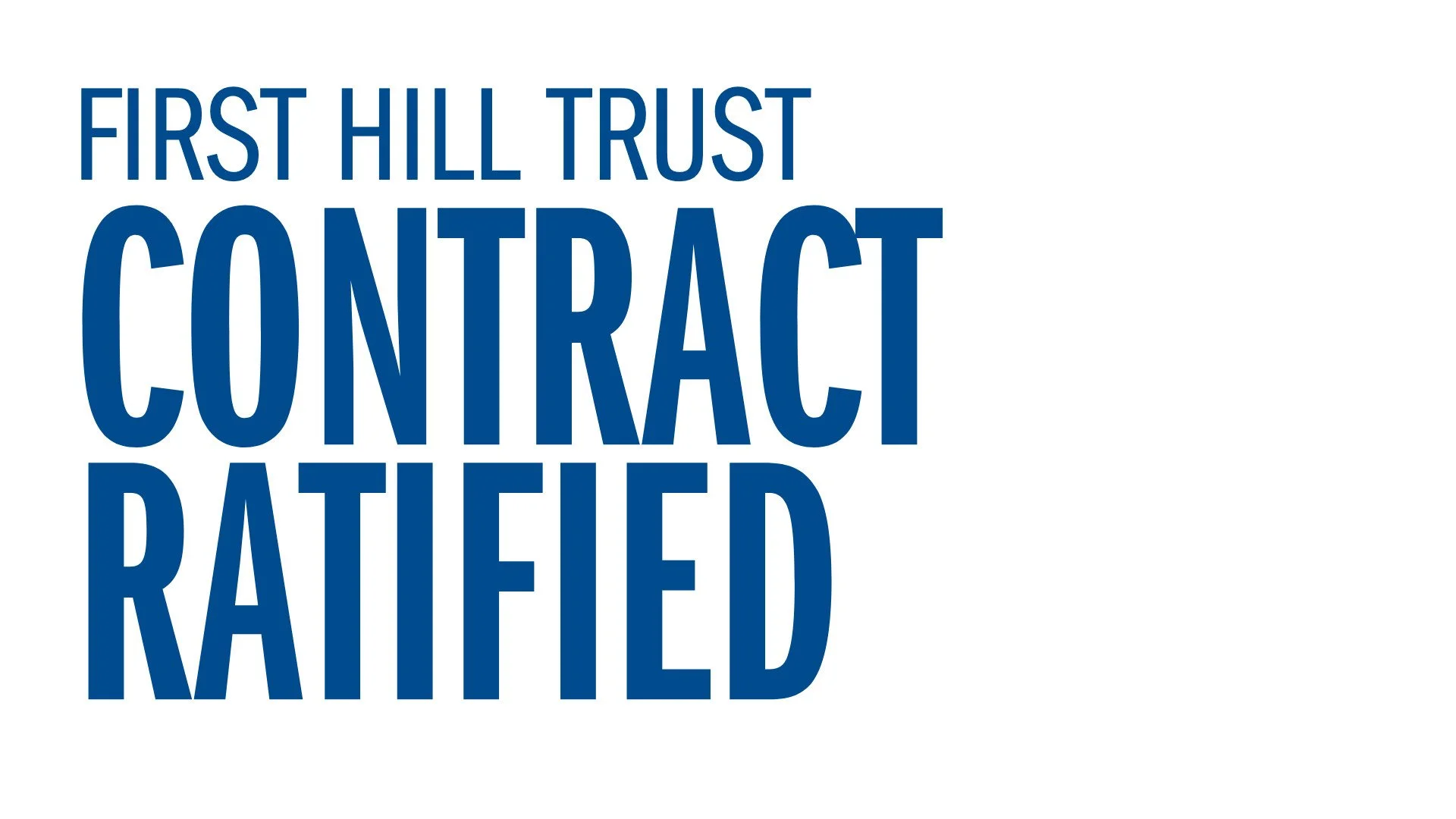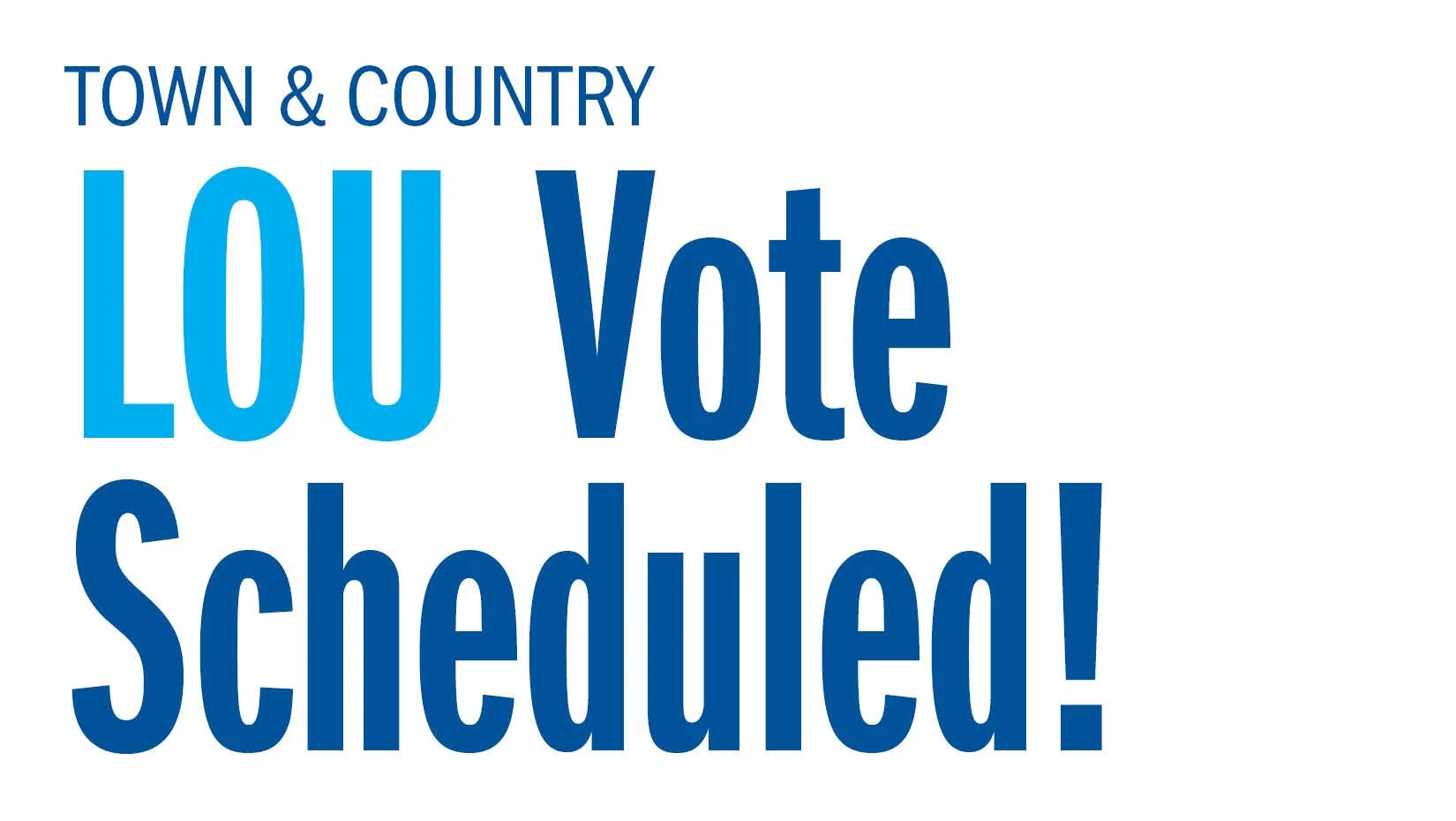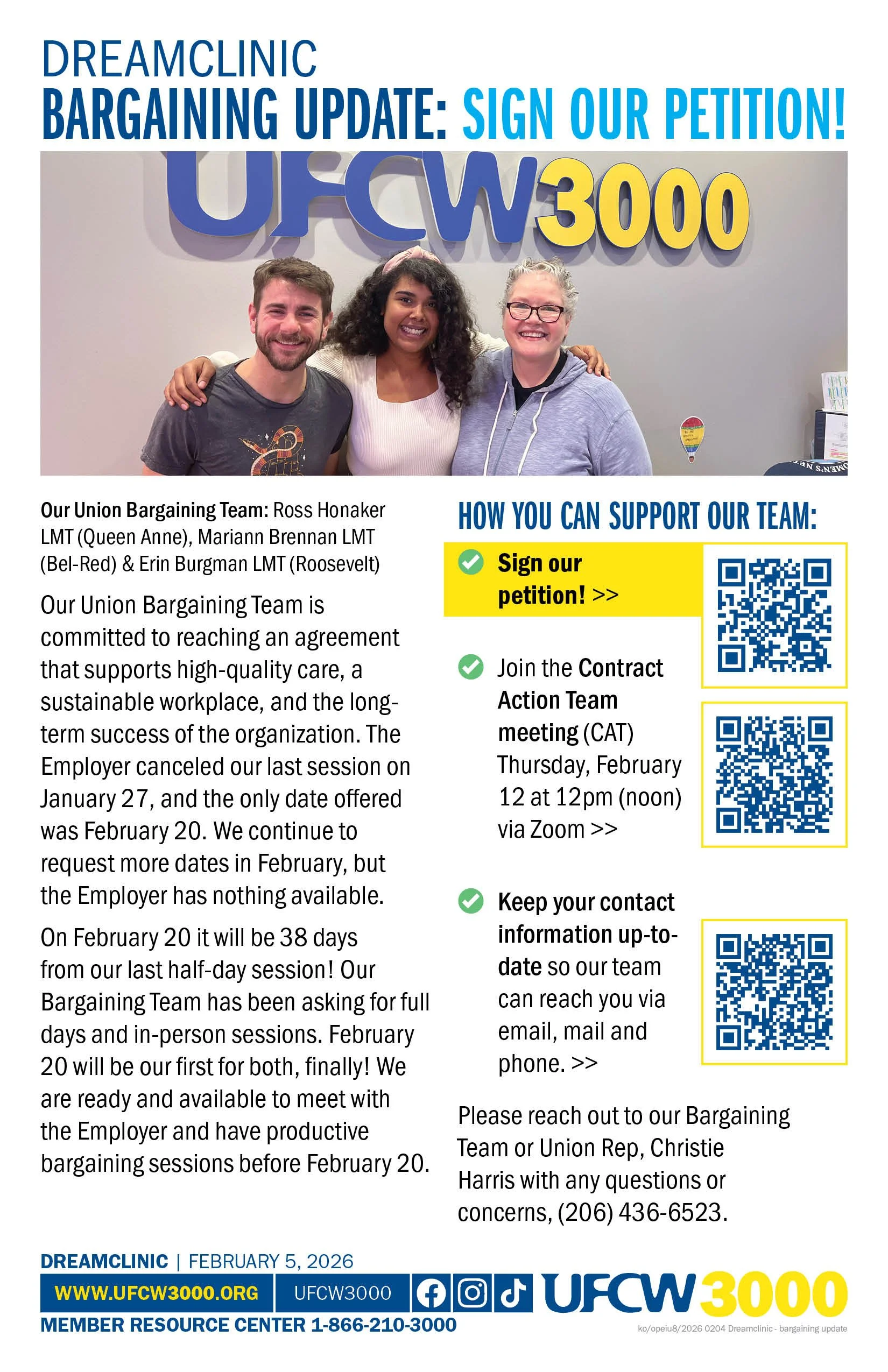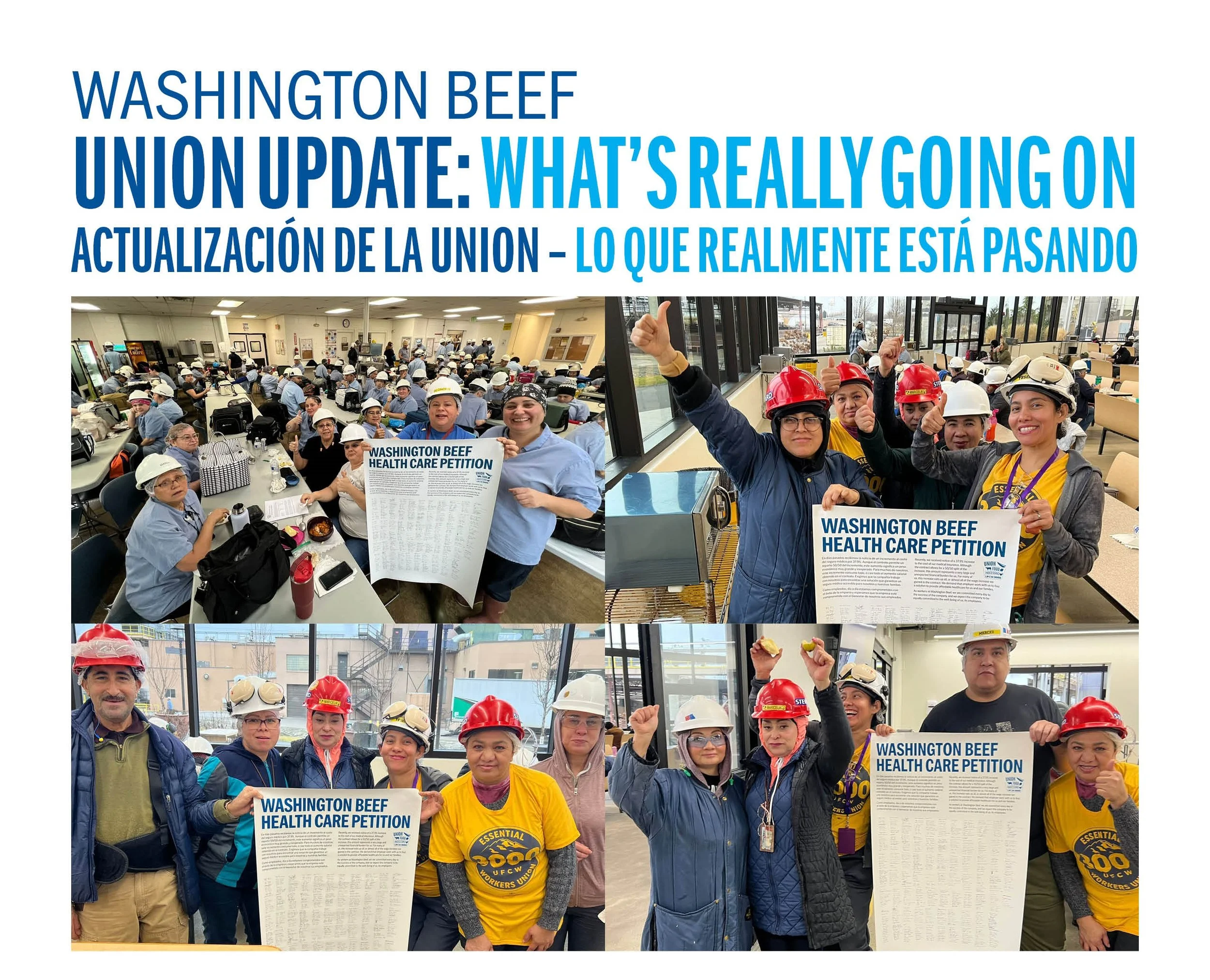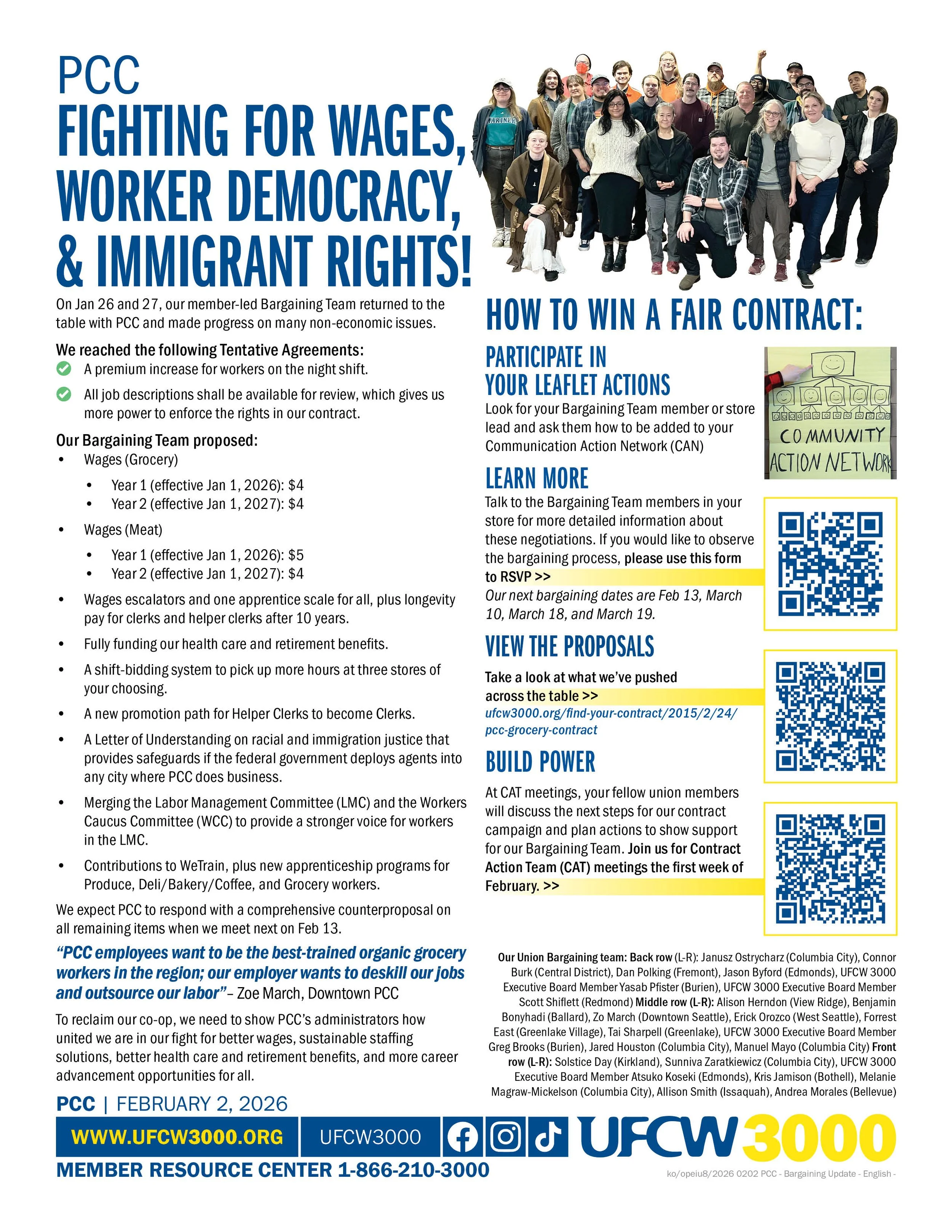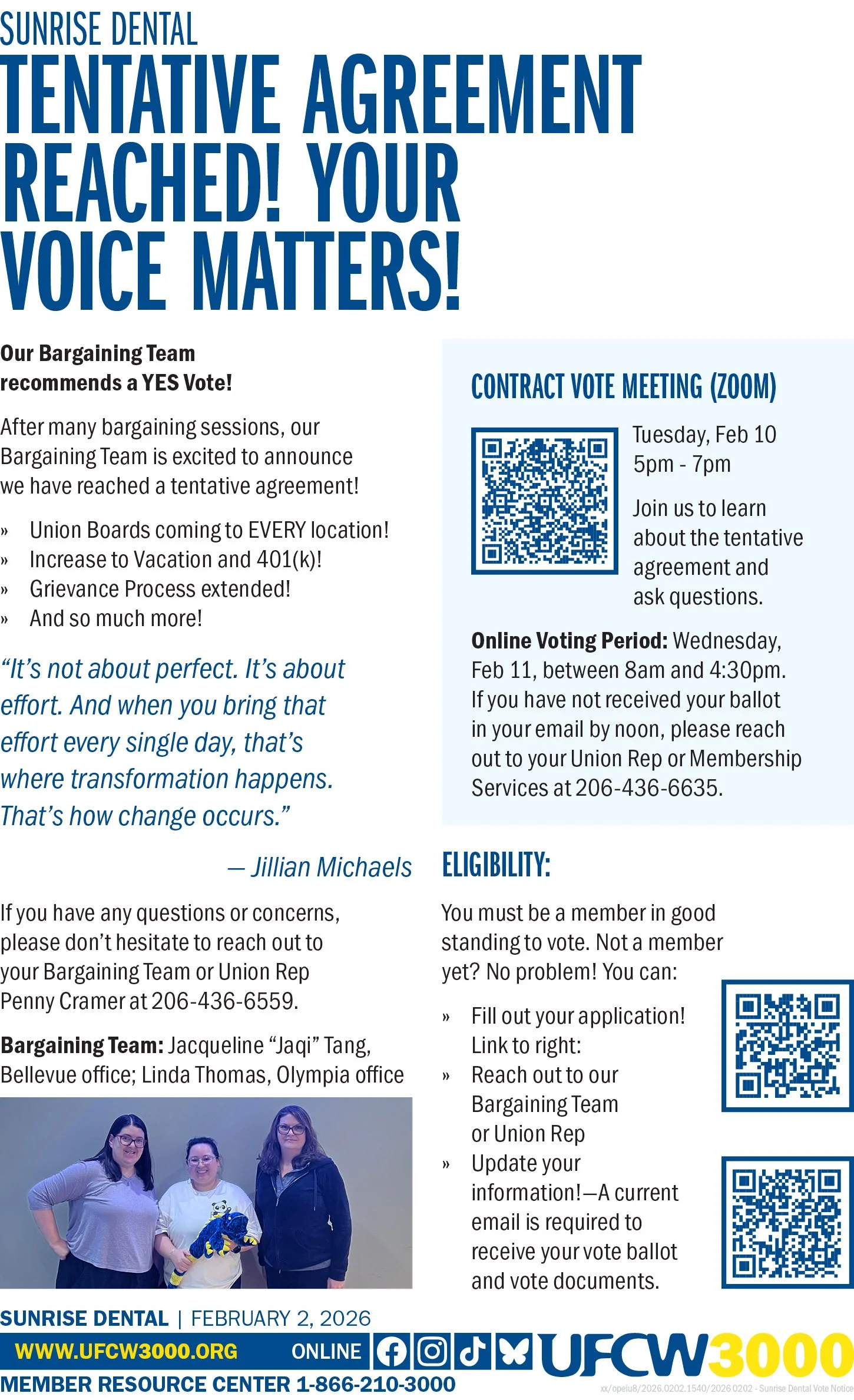10 Things You Can Do Right Now to Support Front Line Workers
/So many of us are essential workers on the front lines of the COVID-19 pandemic right now, keeping our community healthy, fed, and supplied. And we’re hearing from lots of our customers, patients, and friends with questions about what you can do to support us. Here are 10 things you can do.
1) Listen to experts.
The worse this outbreak gets, the harder it will be on everybody, including front line workers. Please, we’re begging you: if you’re not an essential worker, stay home as much as you can, follow all public health recommendations, bend the curve down, and help prevent an overload of our health care system that will put health care workers and all workers at further risk.
2) Take good care of yourself.
Many of us are losing hours, losing work, or facing shutdowns of our workplaces. But we can get through this together, and we’ll need everybody to help us build the world we want to see once the crisis is over. We’ve compiled resources for working people at our website, where you can find information about unemployment and other benefits, health care options, tips on free or low-cost internet, and help with mental health and addiction, domestic violence, immigration, discrimination, food support, and more: Resources for Workers During the COVID-19 Outbreak.
3) Be kind in the grocery store.
Keep 6 feet of distance between you and other people, including shoppers and workers, especially while standing in lines and at the checkout. Limit how many people in your family come into the store. Cover your coughs and sneezes with your elbow or a tissue. Use sanitizing wipes. Leave high-touch surfaces like self-check stations alone. Try using curbside pickup service so you don’t have to go into the store. Only buy what you need, and leave some for your neighbors. And please, be kind and patient—we’re working long, grueling hours and facing higher risk of illness to serve you.
4) Be safe (and keep us safe) in the hospital or clinic.
Unless it’s a life or death emergency, call ahead before you go into any health care facility to see if it’s a good idea to go in person, see if they have space for you, and find out if they’ll need extra protection or precautions to see you based on your symptoms. Use telemedicine if you can. Try calling the state hotline for advice at 1-800-525-0127.
5) Advocate with our government for fair policies and resources.
We are facing an unprecedented situation, and our local, state, and federal governments must step in to help. We’re running multiple campaigns to get lawmakers to help working people right now:
Join us in asking congress to send protective equipment to Washington health care workers and ramp up production of new equipment immediately so we can stay safe
Ask Washington State’s decision makers to join other states in giving “essential personnel” like grocery and pharmacy workers the same access to childcare support as health care workers and first responders so we can continue to work
6) Sign on to our demands of employers.
We simply cannot continue to work without safety and support, and those of us who have lost hours or jobs cannot be expected to find new income immediately during a crisis. Thousands of people have already signed on to these petitions, and you can too. The more people standing with us, the stronger we are:
7) Donate personal protective equipment to health care workers.
Maybe you work in an industry that uses masks, gloves, or gowns, like construction or dentistry? Or you’ve done some home repairs lately, or you stockpiled a little extra when you first heard about the crisis? Health care workers in Washington are already running out of the protective equipment we need, making our jobs dangerous—and potentially deadly. Workers have started sequestering themselves from family, reusing one-time-use equipment for days, and planning for a future without any protective equipment at all. This is terrifying, and you could help. Donate any and all unopened boxes of masks, gloves, and gowns by contacting us and someone will come pick them up: SuppliesSaveLivesWA.org.
8) Consider getting a union job.
If you’re missing hours or your workplace is shut down, you could serve your community in a front line job in grocery or health care. Union jobs have benefits like free online college, predictable raises, affordable health care, and a voice at work. Union workers are fighting for (and winning) better safety standards at work and hazard pay for working through this crisis. Find links to union jobs in health care and grocery at UFCWjobs.com and in cannabis at UFCW21.org/hhjobs.
9) Fight discrimination.
The way we speak about this pandemic matters, and the Asian American and Pacific Islander community is facing a wave of violence and discrimination due to inaccurate and harmful rhetoric about the virus. Discrimination and stigma only hurt our ability to respond to this challenge. It’s important right now to stand up and speak out against discrimination. Our allies at the Asian Pacific American Labor Alliance have put together tips for fighting discrimination and a sign you can hang in your workplace to show support and solidarity: Check it out here.
10) Shop union and don’t cross picket lines (even digitally).
Union members are holding the line for safety at work right now and bargaining for better terms in many industries, which can improve standards for everyone. You can find the list of workers organized with UFCW 21 here, including lots of grocery stores, drugstores, and Have a Heart cannabis shops. (Want to organize your workplace? Get in touch.) Nonunion workers at Instacart, Whole Foods, and Amazon are already staging strikes, walk-outs, and sick-outs to demand safety and better pay, and other workers will likely be taking action in the coming weeks as well. Respect strikelines and stand with working people for change.


